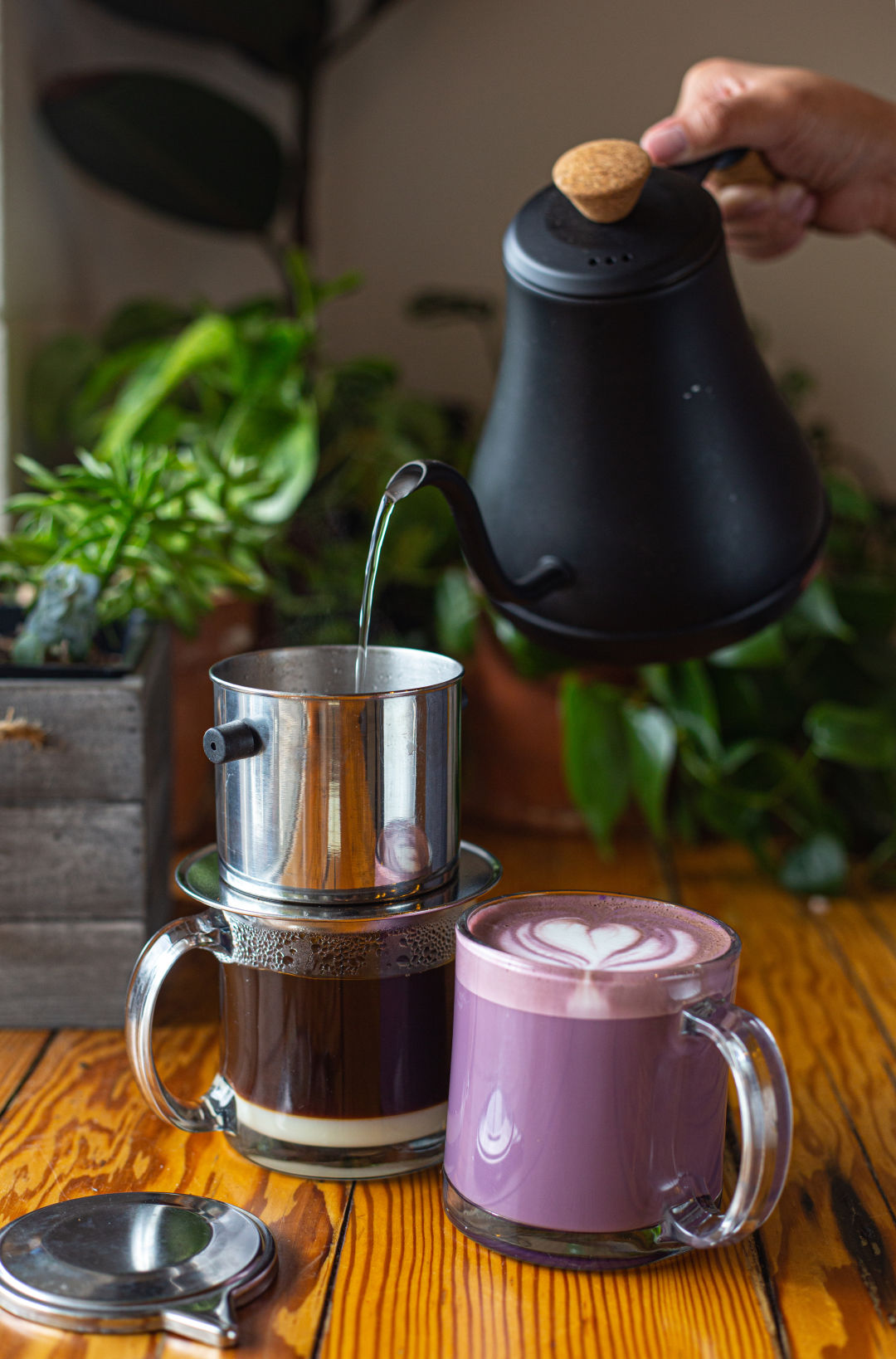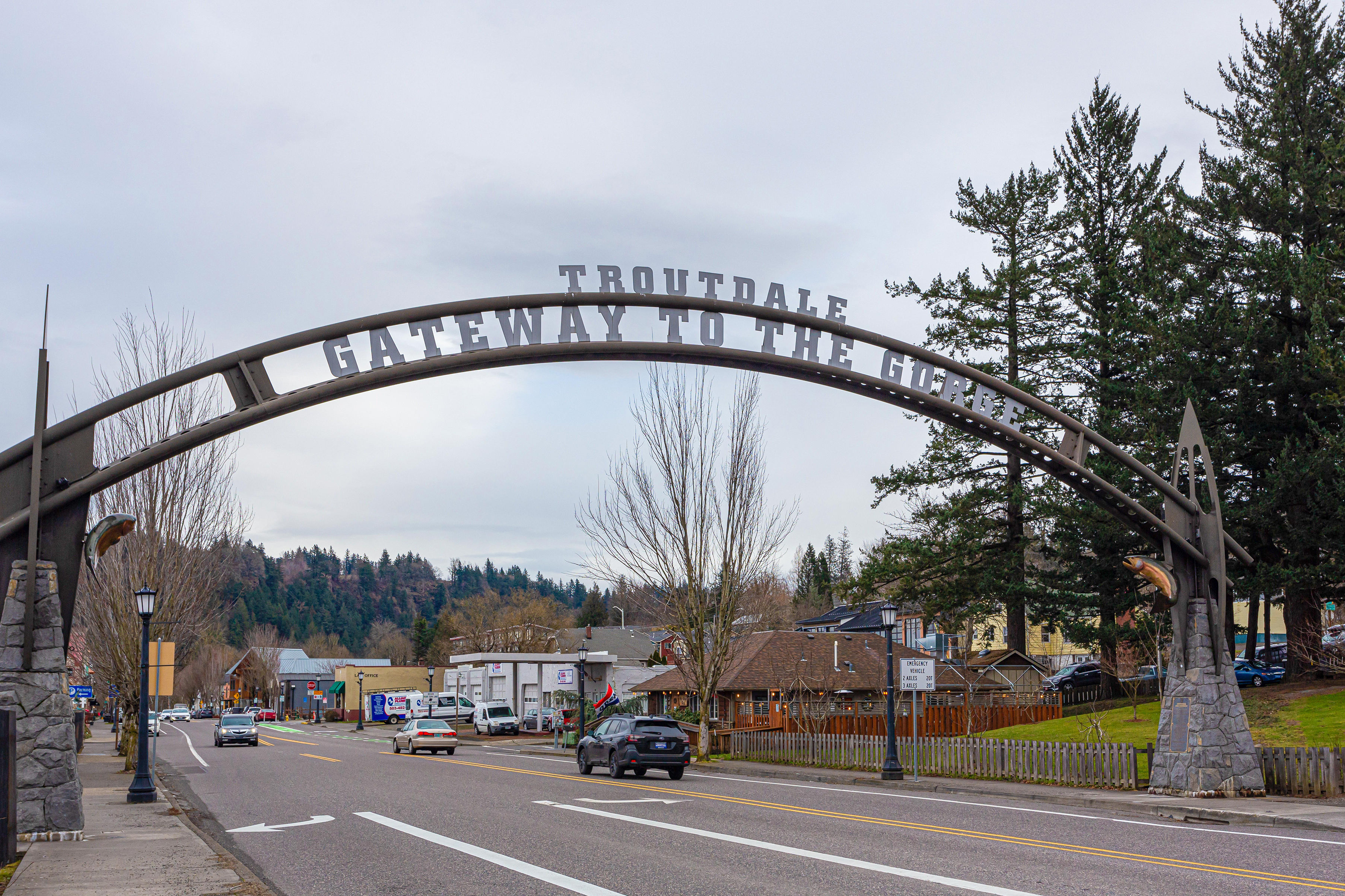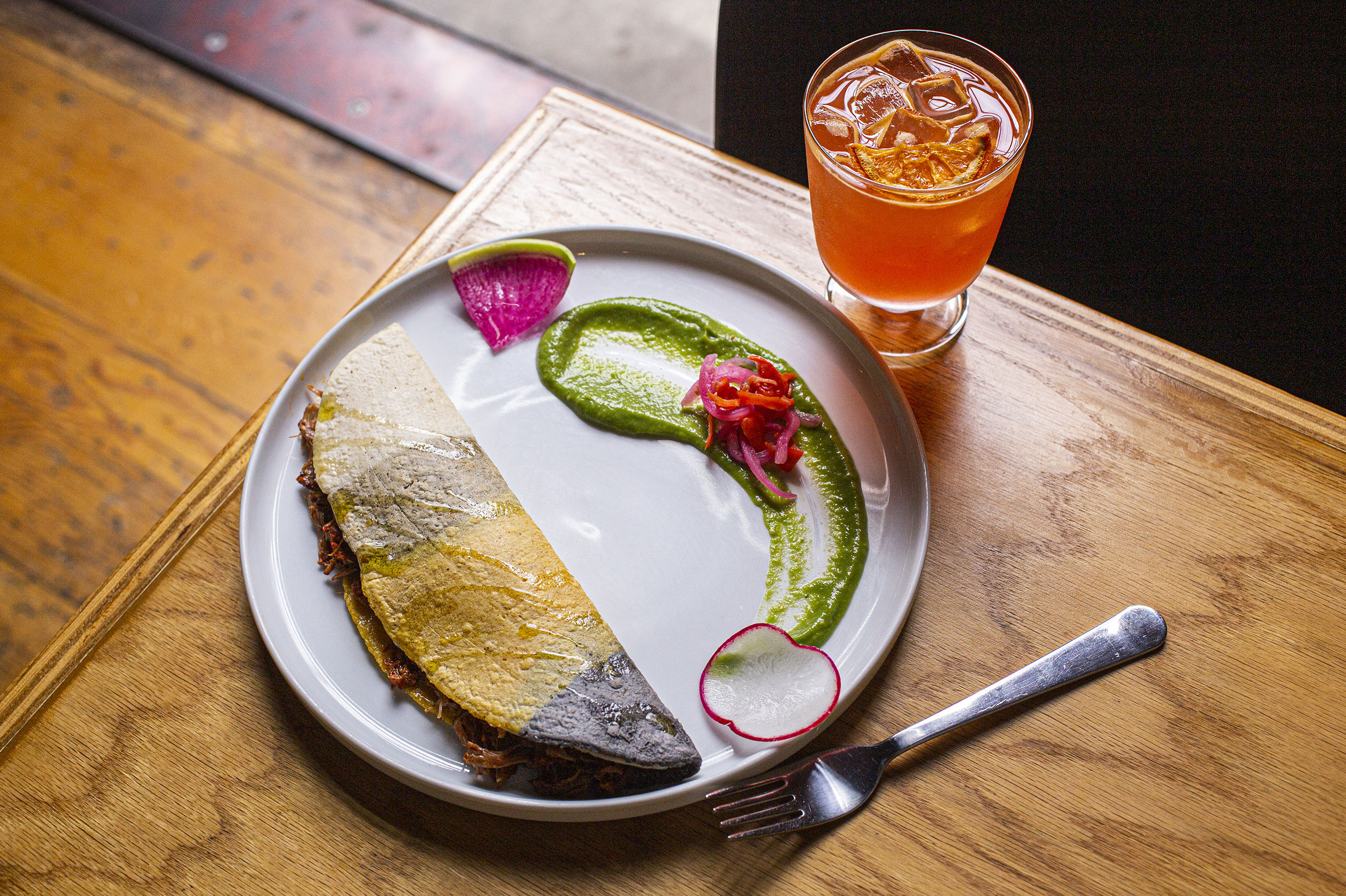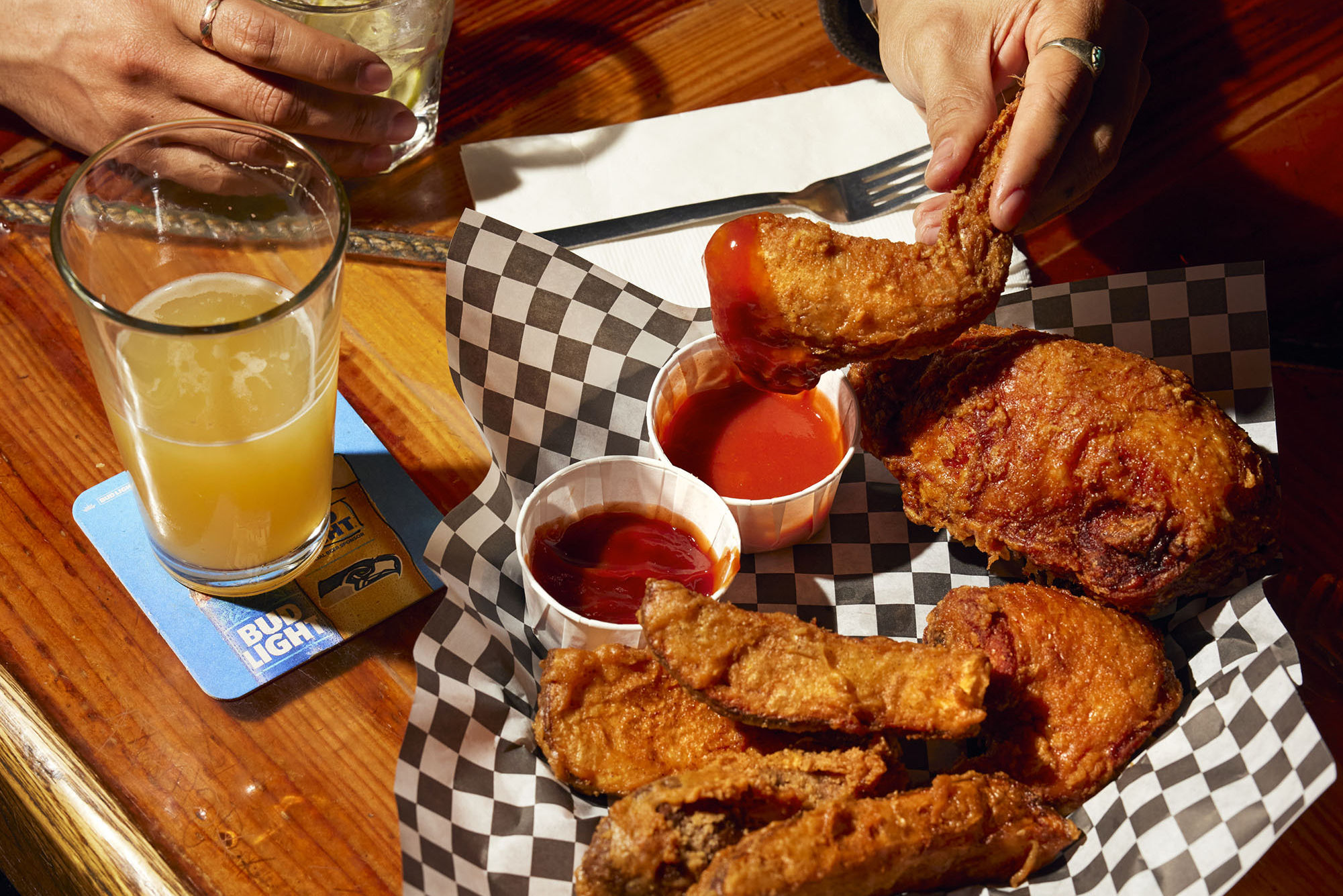5 Portland Roasters Weaving Culture and Identity into Coffee

Portland Cà Phe's ca phe sua, left, and ube latte, right
Image: Michael Novak
While most of us look at our morning cup of coffee and think of a new start, coffee roasters see the conclusion of a long journey that began on a farm thousands of miles away. For some coffee roasters, that journey is more intimate and personal. Whether it’s sharing a part of one’s home by serving coffee grown on a family farm or debunking misconceptions about coffee from their region, these Portland coffee roasters are showing how sourcing coffee from their roots can spur conversations and forge community.
Portland Cà Phê
In the highbrow specialty coffee industry, African and South American beans are considered top shelf. But Vietnamese coffee? Not so much. No surprise to Kim Dam, who in over five years as a barista and café manager, had never worked anywhere that sold specialty coffee from Vietnam. The daughter of Vietnamese immigrants, Dam had other ideas. When the pandemic gave her time to dive back into coffee and learn about roasting, she began at her mother’s sandwich shop House of Banh Mi and connected with coffee farms in Vietnam. After dialing in her roasting skills, she opened Cà Phê in April, showcasing three different roasts from Vietnam plus standout tofu and lemongrass pork banh mi from her family’s shop. The house blend is half arabica, the most commonly cultivated species of coffee popular in high-end coffee in the States, while half is robusta, which dominates Vietnamese coffee production but is often seen as less desirable in the American market. The fruity arabica is balanced by the earthy robusta, says Dam.
PHILOSOPHY: “Coffee should be however you want to drink it. There’s no right way to drink it; there’s no wrong way to drink it.”
WHAT TO ORDER: Ube Latte (house made purple yam syrup with espresso and milk)
WHAT BEANS TO TRY: House Blend (50% Robusta 50% Arabica)
Super Joy Coffee
Originally from Hefei, China, Joe Yang’s love for coffee took him across the globe to Portland, propelled by the dream of opening his own stateside café. He also wanted to introduce Chinese coffee beans to the palates of West coast aficionados. At Super Joy, the 2020 US Coffee Championships roasting winner imports a limited supply of beans from China’s Yunnan region that he roasts alongside coffee from more traditional regions including Colombia, Ethiopia, and Nicaragua.
PHILOSOPHY: “To share joy with our coffee.”
WHAT TO ORDER: Cortado or 8oz Latte (so customers can taste the quality of the espresso)
WHAT BEANS TO TRY: Yunnan (complex mixture of wine, blueberry and chocolate notes)
Abundancia Coffee
When Faisal Mutua was growing up in Kenya, he’d roam his grandfather's coffee farm looking for ripe coffee cherries ready for harvesting or branches in need of pruning. Fast forward to a move to Portland to study nursing, where his love of coffee followed him. So in 2015, the part-time nurse and third-generation coffee farmer created Abundancia to roast and sell his family’s coffee here in the United States, winning several awards for his coffee, like a delicate medium roast with sweet blackberry notes while insisting on a middle-class wage for his coffee farmers in Kenya. Grab a cup alongside some Wagyu beef or Impossible dumplings or freshly baked raspberry scones at The Momo Master, a Nepalese food cart Mutua opened with a friend in spring 2021.
PHILOSOPHY: “Simple is elegant.”
WHAT TO ORDER: Pour over
WHAT BEANS TO TRY: Kenyan Grand Reserve
Café Zamora
Hector Mejia Zamora doesn’t see coffee as just a drink to wake the sluggish—for him, it’s a tool that has the potential to make his home a better place. Growing up on his family’s coffee farm in Guatemala, he saw the many ways in which small coffee farmers were underpaid for their work. When he moved to Portland, Zamora worked several entry-level jobs while learning English. But it was while working as a Lyft driver that he met two passengers who helped him realize his dream to import coffee directly from his family’s farm to serve stateside: a roaster who helped him import his first batch of green beans, and a retail space owner who told him about an available location that became the homey, welcoming Café Zamora, complete with a backyard, community events, occasional live music, and comforting Guatemalan loroco-stuffed tamales made by Zamora’s mother.
PHILOSOPHY: “Coffee is a platform to be able to accomplish something greater.”
WHAT TO ORDER: Pour over
WHAT BEANS TO TRY: Medium Blend (smooth, crisp, chocolatey)
Reforma Roasters
Coffee, for Angel Medina, is about history and connection. Before creating Reforma Roasters, he spent a year traveling through Mexico cultivating relationships with coffee producers and deepening his understanding of coffee production. Now Reforma sources its beans exclusively from Mexico, working with farmers that Medina knows personally and with trusted coffee importers. Find all their beautifully packaged beans at La Perlita, Medina’s bustling brick-walled, high-ceilinged Pearl district coffee shop, and in the mornings, grab some pan dulce to dip into your coffee from neighboring sister restaurant República.
PHILOSOPHY: “Understand the culture and buy from people you trust.”
WHAT TO ORDER: The True Mexican Mocha (espresso, chocolate, milk, and spices dusted with freeze-dried raspberry powder and crushed cacao nibs)
WHAT BEANS TO TRY: “Tell us what you like, and we’ll point you in the right direction.”



